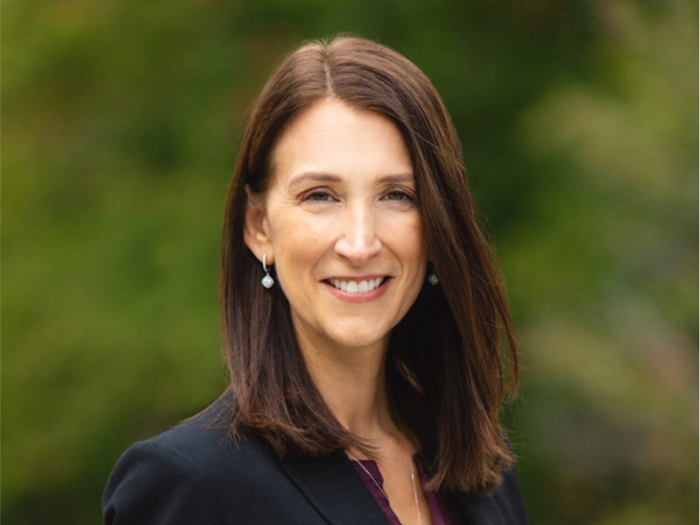Political Risk
Enabling Expansion

Despite the rising tide of political and economic turmoil in the world, the cost of buying political risk coverage and trade credit insurance is declining even as demand is sharply increasing.
“The pricing has become much more competitive,” said New York-based Lila Rymer, head of U.S. underwriting for political risks and trade credit at Beazley. “A lot of new entrants and more capacity in the market has driven this competition.
“So it’s a very good time for clients to consider buying political risk and trade credit insurance because the terms are quite favorable,” Rymer said.
New York-based Stuart Barrowcliff, senior underwriter, political risk for XL Catlin, added that capacity is growing because it is a way for insurers to diversify and expand offerings beyond P&C “where there’s obviously lots and lots and lots of capacity and tremendous pressure on premium.”
A report by Marsh noted that political risk insurance capacity has steadily increased over the past decade, particularly since the financial crisis. In some cases, market capacity for a single policy now exceeds $2 billion, nearly double the available capacity just six years ago, the report said.
Likewise, the increase in trade credit insurance in that period has grown considerably, driven by — among other things — E&S insurers entering the market, as well as banks, other financial institutions and Lloyd’s syndicates making major inroads in this market.
“You also see some of the private equity companies, hedge funds and others who are looking at putting together funding vehicles to invest in trade finance assets and they can come to the trade credit insurance markets to sit behind them,” said Jeff Abrahamson, Baltimore-based global head of supplier trade credit for XL Catlin.
Comprehensive Coverage
In years past, companies and financial institutions might typically buy stand-alone political risk coverage, said Owings, Md.-based James Daly, president and CEO of Euler Hermes Americas.
“But the trend today is to purchase comprehensive coverage, which includes protection against both trade credit losses and political risks,” Daly said.
“Traditional trade credit insurance adds another layer of comfort, protecting against bad debt losses when a customer simply does not pay its bills.”
Political risk insurance protects foreign assets held by multinational corporations, financial institutions, investors and project contractors against the risks of confiscation, expropriation, contract frustration and nationalization, Daly said.
“In addition to providing protection for trade transactions, it may also cover production facilities, equipment, offices, refineries and other fixed assets and equity investments,” Daly said.
Political risk circumstances usually include war, terrorism, riots and actions by local governments, such as changes in export or import regulations that affect the outcome of a transaction.
“Traditional trade credit insurance adds another layer of comfort, protecting against bad debt losses when a customer simply does not pay its bills.” — James Daly, president and CEO, Euler Hermes Americas
Fredrik Murer, New York-based head of Americas, political and credit, for Chubb, noted that political risk and trade credit insurance offer balance sheet protection in an uncertain world.
“Tremendous volatility entered world markets when the commodity super cycle burst,” said Murer.
“The rapid drop in oil prices created upheaval in country and corporate balance sheets alike, creating both political and credit risks in the process.
“Foreign exchange fluctuations add to the stress on U.S. dollar payment obligations. What started as an economic risk may quickly become a political or credit risk as countries act to protect their local interests.”
Corporations and banks are the major buyers of trade credit insurance.
“Banks might buy an annual trade credit policy that we have the option of renewing,” said Beazley’s Rymer.
“When a company is selling goods to a buyer, for example a Brazilian buyer, a bank might purchase the receivables from the supplier. If the supplier is due to get paid in 60 days, the supplier might say, ‘I want to be paid tomorrow.’
“By selling the receivables to a bank, the bank can cash out the supplier up-front and then the buyer owes the money to the bank.”
Rymer added that when banks invest in bigger projects in emerging markets, say a mine or an oil field, they are likely to seek political risk coverage or more comprehensive credit insurance on the investment they’re making.
XL Catlin’s Abrahamson said that other clients are non-bank financial institutions that are providing working capital for corporate clients.
“Banks are using trade credit insurance as a real driver on the trade risk receivables side,” he said.
“A lot of banks will finance receivables for their customers and procure insurance on that financing. This can help them more efficiently utilize their capital.”
Growth Strategy
For corporations, maintaining trade credit insurance and often political risk coverage along with it has become an increasingly important way to expand their business.
“It’s not just about mitigating risk, but very often trade credit insurance helps companies grow their business, so they can increase their lines of credit and expand the business they are already doing,” said Rymer.
“It might help a company access financing through their lending bank. By having trade credit insurance on their buyers they’ll be able to get bigger lines of credit from their lending partners.”
Or if a company is internally very comfortable with a certain limit to a buyer where they see an opportunity to grow, they can credit insure those receivables, which may enable them to extend a bigger line of credit to that buyer and grow overall sales, she said.
Chubb’s Murer noted that political risk coverage and trade credit insurance provide a company with more certainty.
“With this insurance, if the unexpected happens you know there’s a level of protection against an outcome that can be catastrophic to your continued operations,” he said.
“A company can invest and grow its sales base with more certainty and lenders can benefit as they support the continued expansion of their corporate customers.”
Added Gregg Badger, COO for international food merchant Ronald A. Chisholm Limited, “If we did not have trade credit insurance and political risk coverage we would be hard-pressed to do any borrowing against our non-North American receivables.”
Badger said that 60 percent to 80 percent of Chisholm’s business is outside of North America and the company needs that working capital to keep it operating and growing. Chisholm actively does business with hundreds of companies in 50 to 60 countries, he said.
When the company’s salespeople are out looking for new customers and trying to open up new markets, one of the first steps they take is to see whether the customer they’re calling on is creditworthy, i.e., insurable or whether it’s on open credit or on secured terms, Badger said.
Managing the risk of accounts receivable, customers and processes allows the company to assure its banking syndicate that the receivables are insured, he said.











